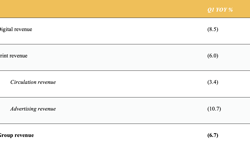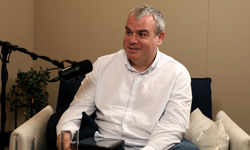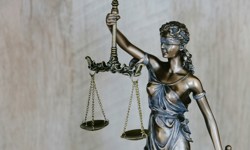In an interview with BBC News, SoE Executive Director Bob Satchwell (pictured) said: “Let’s get this into context, the inquiry looked into several important issues. The first 43 paragraphs of 90-odd paragraphs of recommendations set out the urgent need for reform of the libel laws that restrict the whole of the media including the BBC as well as scientists and academics.
“Second, newspapers consider millions of stories every year, only a very small number give cause for complaint.
“And third, the committee is made up of MPs of all parties each of which may have axes to grind and the Conservative’s communications director used to be editor of the News of the world.
“The committee suggests that the behaviour of some papers and the decisions of the PCC sometimes create an impression that issues are not taken seriously.
“On the question of suspending publication, the committee say quite right that the media has an important part to play in a democracy it is therefore strange that Members of Parliament should countenance the idea that a publication might be suspended by the PCC. That is the kind of censorship that is usually associated with dictators and totalitarian regimes, there is no place for it in a democracy.
“I am not saying that everything is perfect but as you have heard from the chairman of the PCC there are lessons to be learned but what should be remembered is that the government, companies and even the BBC and newspapers pay a lot of money to PR people to keep negative stories out of the papers yet, when the PCC rules against them they volunteer to carry their adverse adjunctions.
“No one should think that editors and journalists are happy to have to apologise and admit that they have got it wrong.”
Later Satchwell said: “After a long inquiry the committee has raised a number of important issues that can be considered carefully by the PCC and the whole of the industry.
“With regard to the News of the World where there is a clash between two major newspapers, there are a lot of grey areas with allegations going back as far as 15 years. The committee seemed frustrated that it was unable to find any black and white answers.
“The committee criticised everyone in sight including the Metropolitan Police, the Director of Public Prosecutions and the Information Commissioner’s office where the fuss first started.
“The main point from the report is that the committee concluded that while there may have been problems in the past they praised the industry for making it clear that bugging and blagging is totally unacceptable and crucially the committee concludes that they found no evidence that it is going on now.
“The McCann case certainly raised issues for all parts of the media largely because of a lack of openness in the Portuguese criminal justice system. That inevitably leads to speculation. It was not only a problem for newspapers or even the media as a whole.
“The committee seems to criticise our evidence that the McCann case was unique and suggested that our comments were complacent. That is simply not so. The McCann case remains unprecedented and continues to cause problems for the media, who have certainly learned their lesson. The simple fact is that hard cases make bad law and this one should not be used to undermine the whole system.”
About the Society of Editors
The SoE says: “The Society of Editors has more than 400 members in national, regional and local newspapers, magazines, broadcasting and new media, journalism education and media law. It campaigns for media freedom, self regulation, the public's right to know and the maintenance of standards in journalism.”










